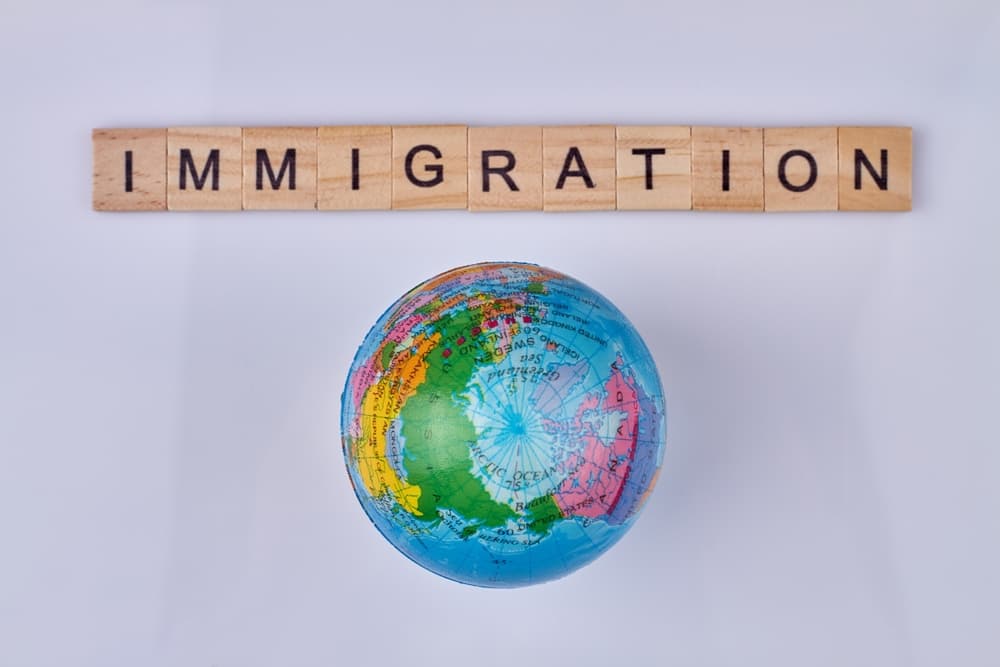Protecting Your Immigration Status With a Motion to Vacate

A criminal conviction affects more than your freedom—it creates barriers to staying in the United States. Deportation, ineligibility for citizenship, or denial of reentry are just a few of the devastating outcomes tied to a conviction.
Addressing these legal issues can be crushing for non-citizens. You may protect your immigration status with a motion to vacate a conviction, which helps prevent these consequences and safeguards your ability to stay in the country.
What Is a Motion to Vacate a Conviction or Sentence?
A motion to vacate requests that the court overturn a verdict or sentence due to legal violations, new evidence, or other significant errors.
For those with immigration concerns, this step may remove the conviction from their record, minimizing the harm it caused.
Reasons to file a motion to vacate include:
- Ineffective counsel: If your attorney failed to explain how a guilty plea would affect your immigration status or provided inadequate representation, you might qualify for relief.
- Procedural errors: Legal mistakes, coercion, or a lack of due process could justify overturning the conviction.
- New evidence or law changes: Recent developments that drastically alter your case may support a motion to vacate.
How convictions affect immigration status
 A conviction creates serious immigration challenges, including:
A conviction creates serious immigration challenges, including:
- Deportation: Convictions for aggravated felonies or crimes of moral turpitude frequently result in removal from the United States.
- Loss of eligibility for relief: When a conviction is on record, programs like asylum, cancellation of removal, or adjustment of status become inaccessible.
- Barriers to naturalization: Permanent residents may lose their opportunity to secure citizenship due to the impact of a conviction.
How vacating a conviction changes your immigration outcome
Vacating a conviction removes its legal effect, allowing individuals to rebuild their lives.
This process offers several immigration benefits:
- Stopping removal proceedings: Without a valid conviction, grounds for deportation may disappear.
- Restoring opportunities: Individuals may regain eligibility for visas, green cards, or citizenship applications.
- Strengthening immigration defenses: A vacated conviction strengthens your standing in future legal challenges.
How Immigration and Criminal Law Work Together in Los Angeles
Non-citizens charged with crimes in Los Angeles face unique challenges where immigration and criminal law overlap.
Convictions in these cases can lead to consequences beyond fines or imprisonment, including risks to their ability to remain in the U.S.
Key points where these legal areas intersect include:
- Criminal charges and immigration penalties: Crimes like theft, drug offenses, or domestic violence may result in deportation, ineligibility for visas, or barred reentry.
- Guilty pleas and unintended outcomes: Entering a plea deal might resolve criminal charges but cause legal complications in immigration cases.
- State-specific relief options: California Penal Code § 1473.7 allows non-citizens to request vacating convictions tied to legal errors or uninformed plea decisions.
- Immigrant-specific legal hurdles: Cultural misunderstandings, fear of deportation, or inadequate representation leave many immigrants vulnerable to harsher outcomes.
- Collaborative defense approaches: Criminal and immigration lawyers in Los Angeles often work together to address both systems and protect clients’ rights.
For non-citizens, addressing both legal systems with a cohesive strategy ensures the best path forward in cases involving criminal charges.
Alternatives to a Motion to Vacate
When a motion to vacate is not viable or successful, other legal options may help safeguard immigration status.
These alternatives address different aspects of a conviction or its consequences, providing additional pathways for relief.
- Post-conviction relief: Measures like withdrawing a guilty plea, seeking a new trial, or appealing a conviction are post-conviction relief. Unlike a motion to vacate, these actions address the validity of the sentence itself rather than its immigration consequences.
- Sentence modifications: Reducing a sentence below the threshold for deportable offenses (such as a term exceeding one year) may eliminate grounds for removal. This option is useful for crimes categorized as aggravated felonies under immigration law.
- Expungement: While expunging a conviction clears it from public records, it does not erase the immigration consequences. By itself, an expungement may not resolve immigration concerns.
- Deferred adjudication or diversion programs: Participating in programs that lead to case dismissal upon completion helps avoid a conviction that affects immigration status. These options are typically only available before a case reaches trial or sentencing.
- Pardons: Receiving a state or federal pardon for a conviction removes some immigration barriers, though not all. Due to their strict eligibility and low approval rates, pardons are often a last-resort option.
These aren’t one-size-fits-all options. Each alternative addresses specific legal or procedural aspects of a conviction.
Preparing for Life After Vacating a Conviction
Vacating a conviction creates opportunities for a fresh start, but taking the proper steps afterward can bring long-term benefits.
Careful planning helps non-citizens protect their immigration status and rebuild their lives without legal obstacles.
- Updating immigration records: After vacating a conviction, individuals must inform the U.S. Citizenship and Immigration Services (USCIS) or other immigration authorities. Submitting updated court records and proof of the vacated conviction ensures the immigration system reflects the change.
- Pursuing immigration relief: A vacated conviction restores eligibility for visas, green cards, or other immigration benefits. Working with a criminal defense attorney who understands immigration implications ensures you file applications accurately and without unnecessary delays.
- Addressing background checks: Although a vacated conviction removes legal consequences, it may still appear in some records. Requesting updates to criminal background checks and ensuring databases reflect the vacated status avoids complications in employment, housing, or travel.
- Rebuilding personal and professional life: Returning to work, securing stable housing, and reconnecting with community support are pivotal steps in moving forward. Access to resources, such as legal aid and community organizations, provides additional support during this transition.
Taking these steps helps individuals fully embrace the opportunities of clearing a conviction.
Common Challenges in Vacating a Conviction
Vacating a conviction offers non-citizens a chance to remove barriers to their immigration status, but the process involves complex legal and procedural challenges.
You can’t achieve a favorable outcome without first addressing these challenges.
- Proving ineffective counsel: Concrete evidence, such as records of miscommunication, overlooked legal options, or inadequate plea negotiations, must demonstrate that an attorney failed to advise on immigration consequences or mishandled the case.
- Meeting procedural deadlines: California courts enforce strict motion filing timelines. Missing a deadline results in dismissal, making it essential to act quickly and adhere to all legal requirements.
- Overcoming prosecutorial objections: Prosecutors may argue against vacating a conviction, claiming it remains valid, or contesting the evidence presented. You need a well-supported argument to counter these objections and persuade the court.
- Gathering evidence: A successful motion relies on thorough documentation, including affidavits, trial transcripts, and evidence of procedural errors or new developments that justify the request. Obtaining these materials requires time, resources, and diligence.
- Convincing the court: Judges often require persuasive legal arguments showing how the conviction resulted from unfair proceedings or legal violations. Without a clear and well-structured presentation, the court may deny the motion.
Each challenge in this process demands precision and careful planning. A qualified attorney with a thorough understanding of criminal and immigration law can guide clients through these obstacles to a new path.
Why Legal Representation is Needed
 Filing a motion to vacate a conviction requires deep knowledge of criminal and immigration law. A skilled lawyer provides the guidance and advocacy necessary to avoid pitfalls that could derail your case.
Filing a motion to vacate a conviction requires deep knowledge of criminal and immigration law. A skilled lawyer provides the guidance and advocacy necessary to avoid pitfalls that could derail your case.
Here’s how legal representation strengthens your chances of success:
- Evaluating the grounds for your motion: A skilled attorney analyzes the circumstances of your case to determine whether errors during your trial or plea process meet the legal requirements for vacating a conviction.
- Identifying procedural violations: Lawyers understand what to look for, such as ineffective counsel, lack of due process, or other rights violations, and they know how to present these issues convincingly.
- Building a solid argument: A compelling motion requires thorough legal research, careful drafting, and persuasive arguments that highlight the impact of the conviction on your immigration status.
- Protecting against further harm: Without proper representation, procedural mistakes or poorly prepared motions might lead to delays or additional legal challenges.
- Coordinating with immigration attorneys: Criminal defense lawyers often collaborate with immigration attorneys to create a comprehensive strategy that addresses all consequences of your conviction.
A lawyer also reduces the stress of navigating a complicated legal system. With your future at stake, there’s no room for guesswork or errors.
If a conviction is jeopardizing your immigration status, act now. Contact The Rodriguez Law Group to discuss whether a motion to vacate is suitable for you.
Protect your right to stay in the country and move forward without the weight of a conviction holding you back.
FAQ
What is a motion to vacate?
A motion to vacate asks the court to overturn a criminal conviction or sentence due to errors, legal violations, or other significant factors. For non-citizens, a successful result removes immigration barriers linked to the conviction.
Who qualifies to file a motion to vacate in California?
California Penal Code § 1473.7 allows individuals no longer in criminal custody to file a motion if the conviction affects their immigration status or results from prejudicial legal errors.
How does vacating a conviction help with immigration status?
Vacating a conviction removes its legal effects, potentially stopping deportation, restoring eligibility for immigration benefits, and strengthening legal defenses in immigration proceedings.
Does a vacated conviction disappear from my record?
Vacating a conviction removes its legal consequences but may not completely erase it from public or private records. Additional steps, such as expungement, may need to clear all traces.
Can I file a motion to vacate while in deportation proceedings?
Yes, filing a motion during deportation proceedings is possible and may help halt the process if the motion succeeds. Legal counsel guides you on how to coordinate these efforts.
What evidence is needed to support a motion to vacate?
Evidence may include court records, affidavits, trial transcripts, proof of procedural errors, new evidence, or ineffective counsel. Documentation must demonstrate the grounds for vacating the conviction.
How long does the process take?
Timelines vary depending on the complexity of the case and court schedules. Consulting with an attorney ensures you understand what to expect for your specific situation.
Can any conviction be vacated?
Not all convictions qualify for vacating. The success of a motion depends on the case’s specific circumstances, including legal errors or the impact on immigration status.
Do I need a lawyer to file a motion to vacate?
While not legally required, a lawyer significantly increases the chances of success. They can identify legal errors, gather evidence, and build a strong argument tailored to your case.
What happens if the motion is denied?
If the court denies the motion, you may explore other forms of legal relief or appeal the decision.
Can I file a motion to vacate if I’m no longer in the U.S.?
Yes, California Penal Code § 1473.7 allows individuals outside the United States to file a motion to vacate. However, the process may require additional coordination with legal counsel to address logistical challenges and ensure proper representation in court.
What if my conviction involved a plea agreement?
If you agree to the plea agreement without fully understanding its immigration consequences, it may be grounds for a motion to vacate. Legal errors, such as inadequate advice from counsel, strengthen the argument for overturning the conviction.
 Facing the immigration consequences of a criminal conviction is daunting, especially when your future in the United States seems uncertain.
Facing the immigration consequences of a criminal conviction is daunting, especially when your future in the United States seems uncertain.
Whether you pursue a motion to vacate or explore other legal avenues, taking action to address the conviction is essential. These legal tools allow you to correct past mistakes, protect your ability to remain in the country, and rebuild a stable life.
The process requires persistence and support, but you don’t have to face it alone. Partnering with attorneys who understand immigrants’ challenges ensures you have a committed advocate safeguarding your rights and opportunities.
Every step you take brings you closer to a life free from the barriers caused by a conviction. Take control of your future today. If a conviction threatens your immigration status, don’t wait to act.
Contact The Rodriguez Law Group at (213) 995-6767 to explore your legal options and find the best path forward. Your right to remain in the U.S. and build a secure future is worth fighting for—schedule your consultation now.


